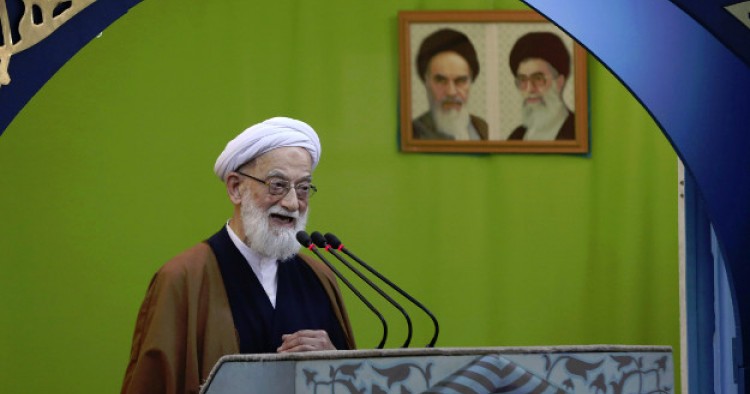A senior Iranian cleric defended the regime of Bashar al-Assad and accused the United States of providing terrorists with chemical weapons in Syria. “You have created them (terrorists) and you have given the chemical (weapons) to them,” Ayatollah Mohammad Emami Kashani said earlier today in Tehran. He complained that Washington lies about the chemical attack by the Syrian regime and the world accepts it. Separately, the Iranian media also blasted the Trump administration’s “aggression” in Syria and claimed the U.S. missile strikes against a Syrian airbase violated international law and further complicated the Syrian civil war. Fars News Agency, which is affiliated with the Islamic Revolution Guards Corps (I.R.G.C.), published a lengthy analysis entitled, “What were Trump’s objectives of missile strikes?” The article claimed that Washington and its Arab allies were no longer able to tolerate the success of the Syrian regime and its foreign allies.
Comment: During the U.S. presidential campaign last year, Iranian leaders were cautiously optimistic that then-candidate Donald Trump’s favorable view of Russian President Vladimir Putin and the Trump team’s eagerness to work with Moscow in the war on terrorism might benefit Iran’s agenda in Syria and in the broader region. But that optimism quickly faded after President Trump took office in January and soon adopted a more aggressive approach vis-à-vis Iran, by including the Islamic Republic in the travel ban, imposing new sanctions on Iranian entities, and warning Tehran over its controversial ballistic missile test. Recently, Iranian leaders have also expressed concern over the Trump administration’s potential plan to establish safe zones in Syria. And the latest U.S. missile strikes in Syria – the first targeting the Assad regime since the start of the civil war six years ago – appears to have completely dashed Iranian leaders’ hope that the Trump administration’s Middle East policies would help advance Tehran’s interests in the region.
The Middle East Institute (MEI) is an independent, non-partisan, non-for-profit, educational organization. It does not engage in advocacy and its scholars’ opinions are their own. MEI welcomes financial donations, but retains sole editorial control over its work and its publications reflect only the authors’ views. For a listing of MEI donors, please click here.













